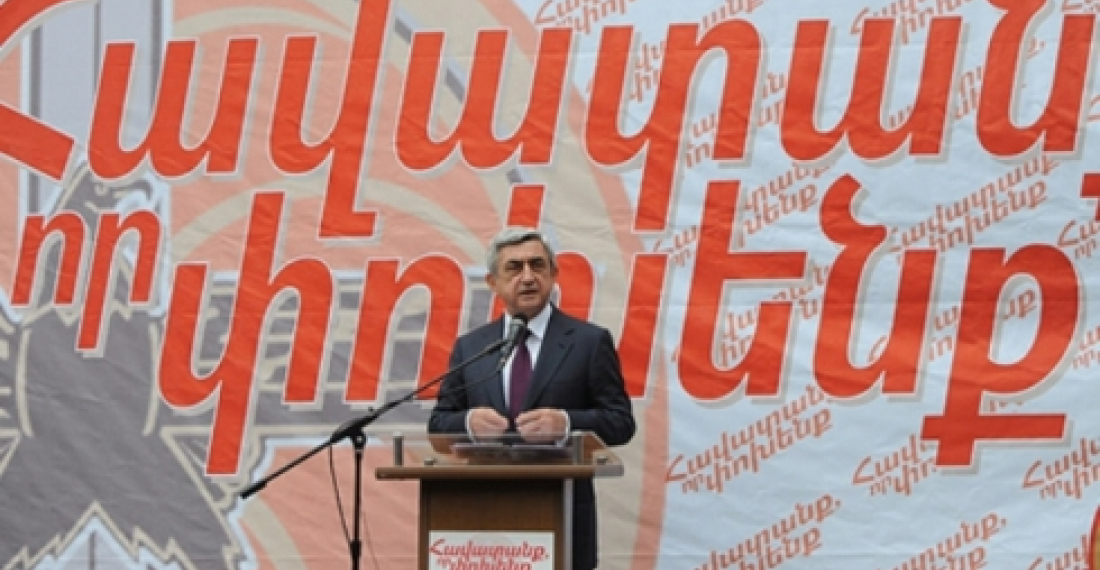Campaigning for the 6 May Parliamentary elections is continuing in Armenia with all the major political leaders and activists from the nine parties and blocs contesting the election out on the campaign trail.
President Serzh Sargsyan, Leader of the Republican Party of Armenia was in the Syunik region where he spoke about environmental issues and the need to develop a European level environmental policy for the country. The President also noted that one third of the industrial product volume produced in Armenia's regions comes from Syunik region and ninety percent of Armenian mining industrial volume was also produced in Syunik Region in 2011
Observors see this as one of the most hotly contested elections in Armenian history with both government and opposition parties employing modern tactics including the use of new media in their campaigning. Some old tactics are also observed however, as reports continue to come in of different parties offering money and other material goods to voters. Some parties also claim that their rivals are using black PR against them.
There is also intensive speculation the Armenian media about possible re-allignments between the various political forces before and after the election.
In the meantime there is increasing concern about the accuracy of the voters list. An Armenian newspaper has reported as an example the case of one village where the population mysteriously increased from 2500 to 3000.
As reported by News.am the daily newspaper Chorrord Inknishkhanutyun writes that it continues to receive calls from Armenia's citizens who inform that unknown people are registered in their home addresses.
"Ararat Region's Taperakan village likewise was not left out of this vicious phenomenon of extra registrations. Here the number of members of virtually all families is inflated. According to our information, the most number of people is registered at the home of Taperakan's prefect Mihran.As a result, the population of the village, which has 2,500 residents, has increased by 500," Chorrord Inknishkhanutyun writes.
(The third in a series of the briefings on the Armenian Parliamentary Elections, prepared by LINKS Analysis, in which the prospects for Levon Ter-Petrosyan and the opposition Armenian National Congress is discussed, is available here.)
source: commonspace.eu with news.am
photo: Serzh Sargsyan addressing a campaign rally (picture courtesy of the Press Service of the President of Armenia)







